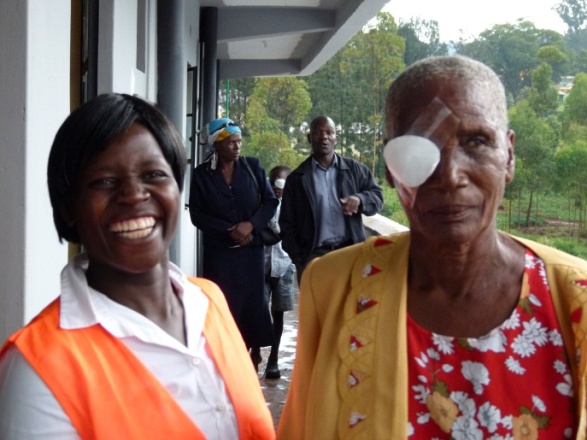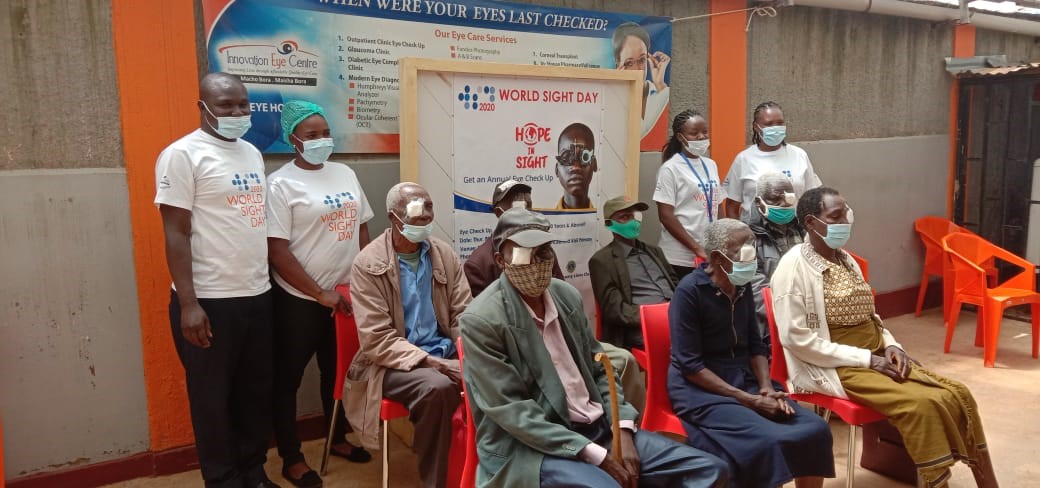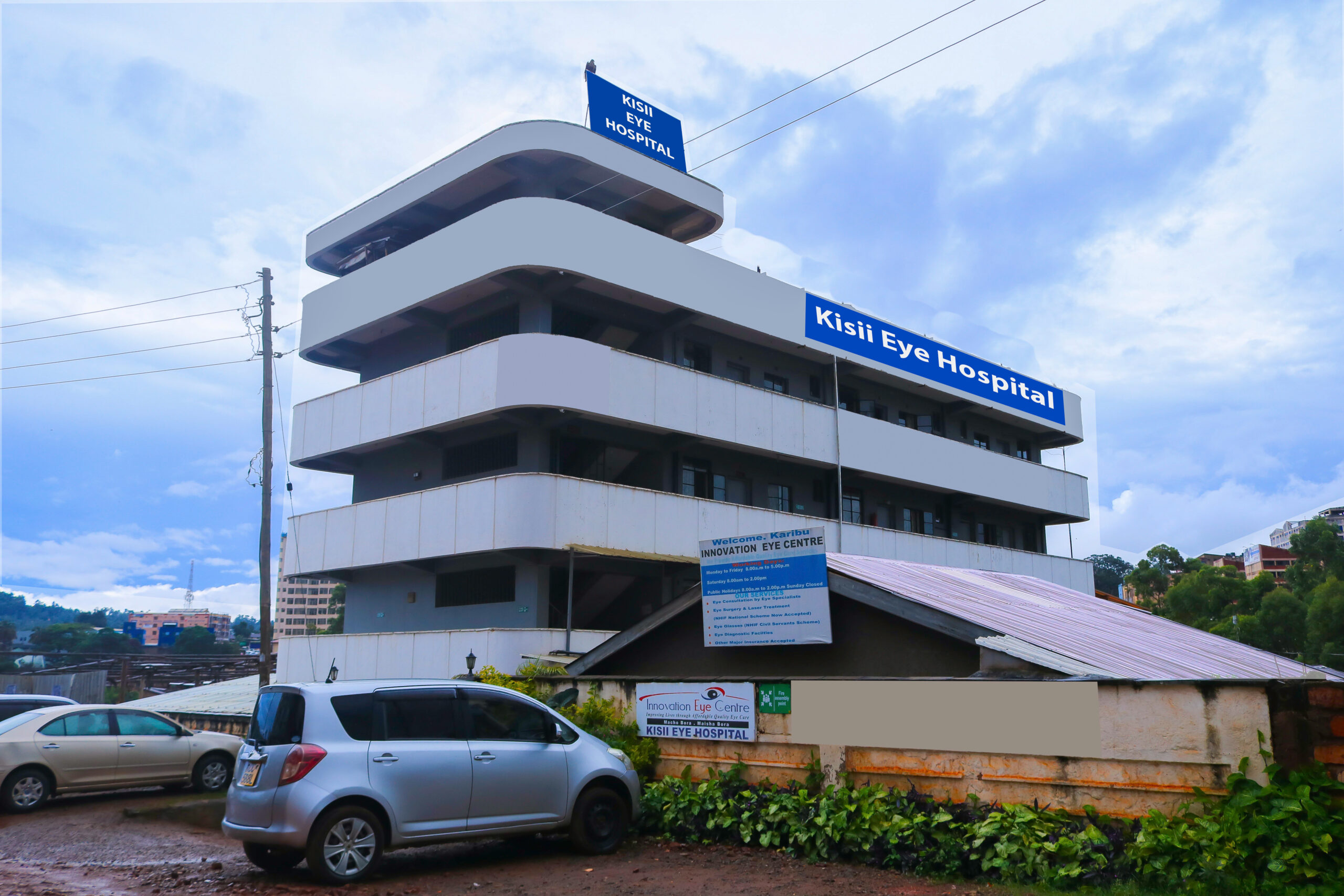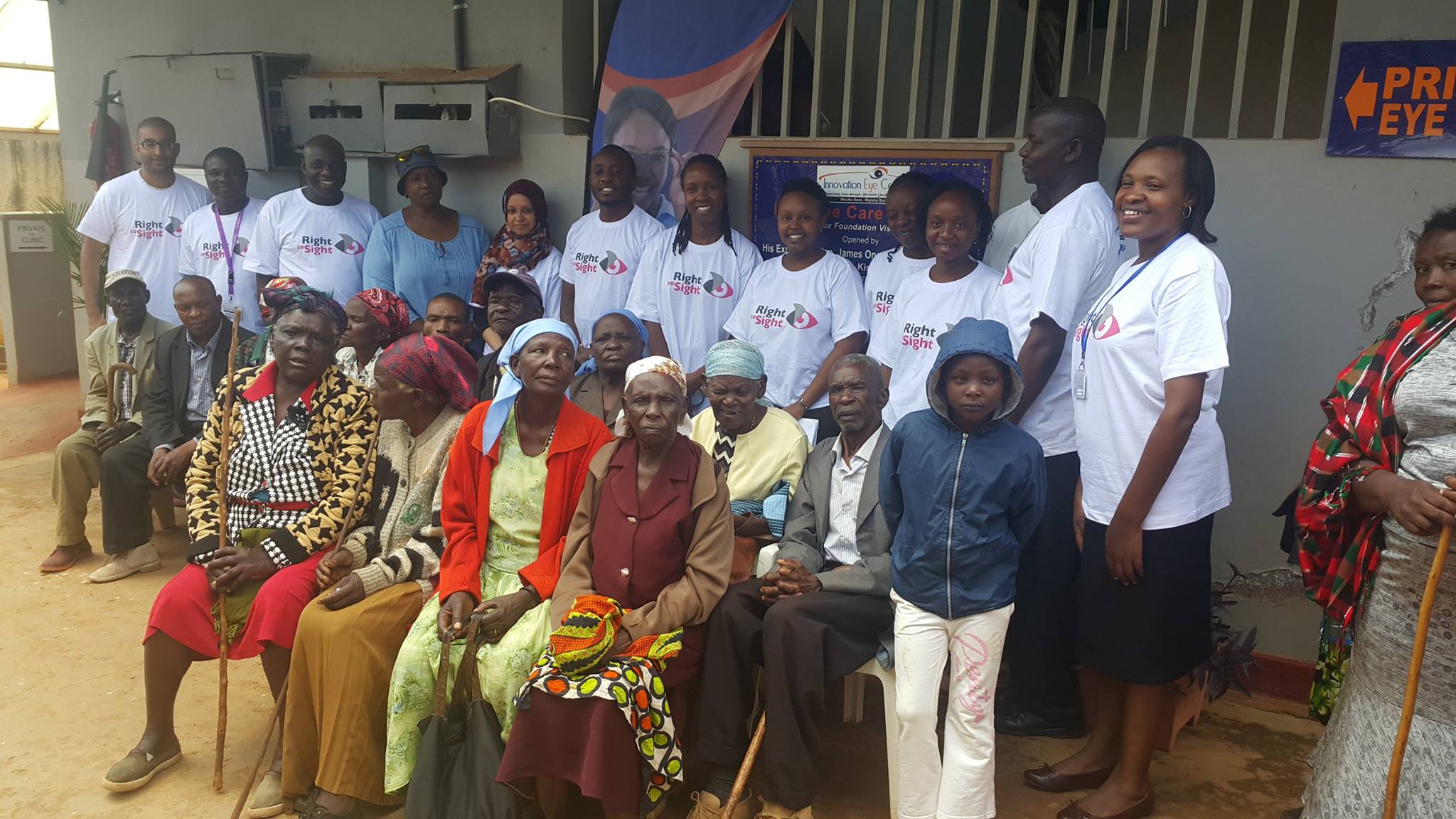
Jacqueline Kiage is a passionate entrepreneur from Kenya. She is co-founder of Innovation Eye Centre, a health social enterprise that offers high quality, affordable and accessible eye care services to the community in the South Western Region of Kenya.
Healthcare has always been (and continues to be) a very big issue in Kenya. It is extremely expensive and thus reserved to the wealthier part of the population. That’s where the idea of opening the Innovation Eye Centre came from: Jacqueline and her husband wanted everyone to have the possibility to monitor their eyes’ health, so to eliminate preventable blindness.
In order to make this idea become a reality, Jacqueline needed some entrepreneurial skills, so she decided to enroll in the Global MBA in Impact Entrepreneurship in Nairobi at Tangaza University College.

“I particularly enrolled for this MBA because it was different. It addressed the issues of social impact and social transformation. It taught skills on how a business can make an impact in the community. Furthermore it was very practical, we worked on the business idea through the development of a business plan. Learning by Doing: that’s how I had the chance to get all the competences I needed to develop my own business.”
But let’s learn more on Jacqueline’s activity.
1. How was your Business Idea born?
The business idea was born in 2012, Me and my co-founder, Dr. Dan Kiage, a Consultant Ophthalmologist and glaucoma specialist, wanted to address unmet eye health needs, that lead to vision impairment and blindness, especially in underserved rural low and middle income communities.
The Innovation Eye Hospital, also known as Kisii Eye Hospital, is located in Kisii town (Kisii County) and mainly serves the communities in South Western Kenya to make eye care services affordable and accessible to all people. Our Vision is to eliminate preventable blindness. We offer clinical, surgical, and optical eye health services. We also provide community-based outreach eye screening programs.

2. How can your business improve the life of the beneficiaries of your activities?
Vision loss has serious socio-economic effects and it affects individuals, families and communities, leading to poverty, reduced work productivity, reduced income and reduced school performance, especially for children. Eye health contributes to the overall health and wellbeing, social inclusion, improved quality of life, increased work productivity, improved school performance and visual disability inclusion.
Improving access to eye health also contributes to achieving the Sustainable Development Goals (SDGs) by building on the principle of “leaving no one behind” and addressing the SDGs such as Goal 1 -reducing poverty, Goal 3- improving health and wellbeing, Goal 4- quality education, Goal 5- gender equity, Goal 8- improving work productivity, decent work and economic growth, Goal 10- reduced inequality by promoting social and visual disability inclusion and Goal 17 – partnerships to achieve the goals among others.

3. What has been the main challenge you had to overcome in your entrepreneurial experience?
Eye Health is a specialty health service and getting a team of ophthalmic specialists was the main challenge when we started. So we found a way to overcome it: we trained specialty staff in collaboration with other health medical training institutions that train ophthalmic personnel, both nationally and internationally.
Healthcare is also a very intense capital venture, but through collaborations and partnerships with likeminded institutions and organizations, we have been able to provide cost effective interventions. We are grateful to all the institutions that we collaborate with, this makes the eye care services accessible and affordable to all, irrespective of their ability to pay.
4. In your opinion, what are the main qualities an entrepreneur should have?
Entrepreneurship is not an easy journey. In order to be successful as an entrepreneur you should have qualities such as problem solving skills, be a risk taker, hard worker, decision making skills, be innovative, have patience, persistence, discipline, be flexible and adapt to change very quickly (this was mostly useful when the Covid-19 pandemic started). There are many other characteristics, but, most important for us as a family, has been to have faith and trust in God in every step, all the time, all the way.

5. Is there a person you are inspired by, i.e. an entrepreneur or a particular mentor?
As an Eye Hospital, we were particularly inspired by Aravind Eye Care System (Aravind Eye Hospital and LAICO). We are grateful particularly to Mr. Thulasiraj Ravilla, Director Operations, Aravind Eye Care System, Executive Director LAICO and his entire team who have mentored us since the beginning of the business and through ACCESS projects and programs we continue to work together with other partners.
In Africa, Dr. Kunle Hassan, Founder and Chief Medical Director of Eye Foundation Hospital Group in Nigeria has also inspired us as a successful entrepreneur in eye health in Africa. We also appreciate all the organizations we have worked with and mentored us in different ways.
6. What would you suggest to a new-born entrepreneur?
A new entrepreneur should have confidence in their business idea and work towards turning the idea to reality. Delegate and get a great team to work with, as well as external advisors who will help you develop systems, processes, and strategy for the enterprise.
Getting a mentor and coach to hold your hand is also very useful. Mentors offer a wealth of experience; they have been there and done that. They also help you monitor and evaluate your progress in the entrepreneurial journey and help you stay on the right track.

7. Could you tell us a particular satisfactory moment you had in your entrepreneurial activity?
Our business model is inclusive, as we serve all patients despite their socio-economic status. This is possible through the cross-subsidy model and support for the community outreach program. Despite this unique business model, it’s satisfactory that access to eye care services is available even to the most vulnerable members of our community as the business aims to attain social and financial sustainability.
International recognition of our social entrepreneurial efforts and impact in the community has been the most satisfactory moment for the Kisii Eye Hospital team and all our collaborating partners. For example, in 2020 we received the Vision 2020 Award. Also the recognition by the International Agency for the Prevention of Blindness (IAPB) was very humbling, as our CEO/ Medical Director, Dr. Dan Kiage, and Innovation Eye Centre- Kisii Eye Hospital team was recognized for the global initiative to eliminate avoidable blindness.

8. Could you tell us how the MBA has helped you and your business?
As Co- founder and Chief Operations Officer (COO) of the business, the skills I learnt while studying for the MBA helped me understand how business is done and how to develop business operations and processes, making it easier to adapt to the market place, especially during the business start-up stage.
Understanding service delivery components such as goods and services, financing, operations management, strategy, marketing, people management, project management, business plan development, leadership and governance among others has been very useful.
Learn more on Innovation Eye Centre- Kisii Eye Hospital
Facebook page: @kisiieyehospital
Twitter Account: @EyeKisii
